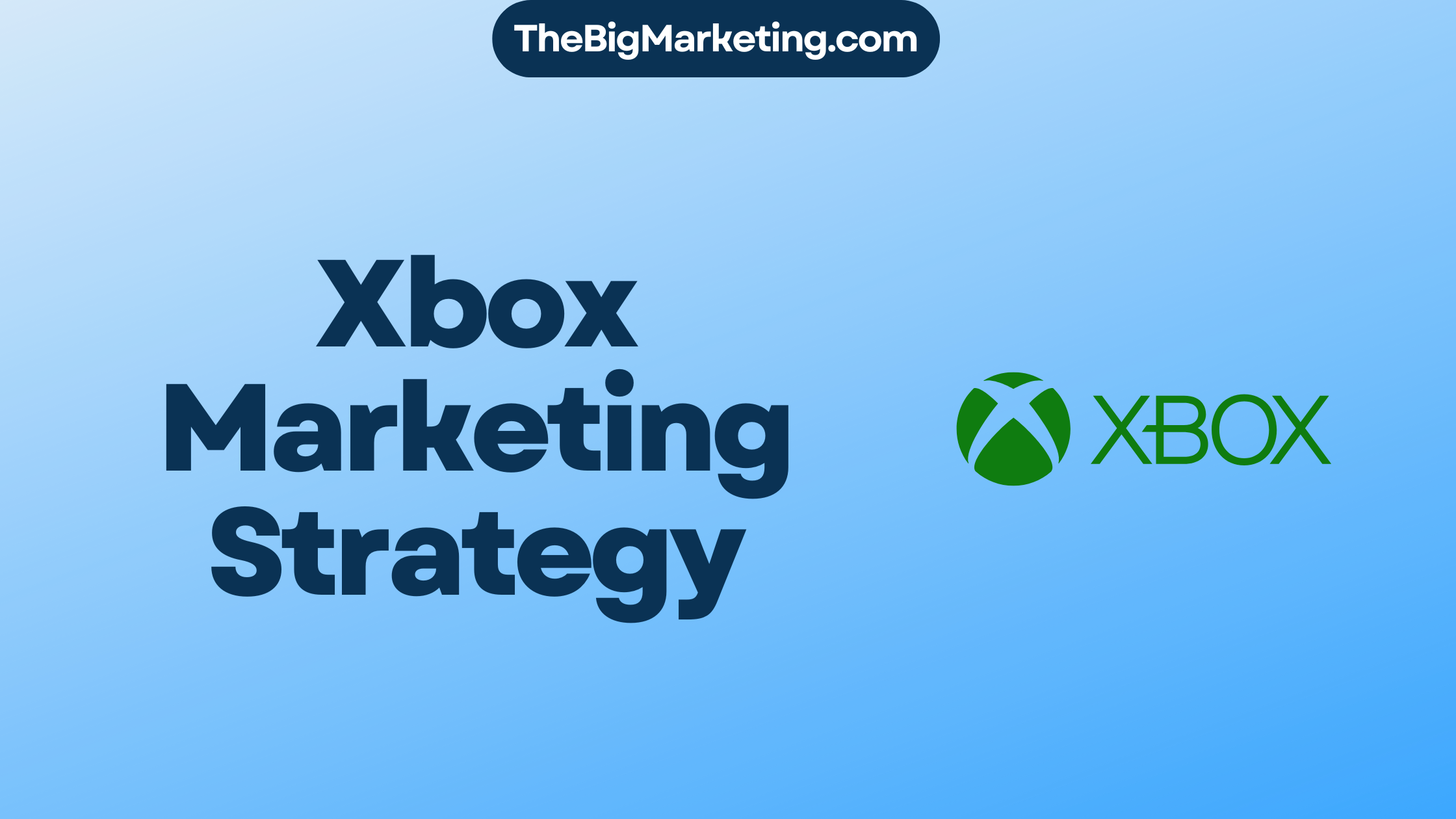Tesla, the American electric vehicle and clean energy solutions company, has gained remarkable success with its unique marketing strategy. Despite adopting a $0 marketing approach, Tesla has leveraged its operational advantages to establish strong brand positioning and drive its advertising tactics. With a focus on digital marketing, social media strategy, and customer targeting, Tesla has become a pioneer in the automotive industry, setting new benchmarks for marketing campaigns.
Tesla’s marketing strategy is built on a solid foundation of market segmentation and a deep understanding of its target audience. By catering to individuals who value high-performance electric vehicles and are passionate about sustainability, Tesla has effectively created a brand image that resonates with its customers.
One of the key elements of Tesla’s marketing strategy is its direct sales approach. Unlike traditional automakers, Tesla bypasses franchised dealerships and operates a global network of company-owned showrooms and galleries. This direct sales strategy allows Tesla to maintain control over the sales and customer service experience, ensuring a seamless and transparent process.
In addition to its direct sales approach, Tesla also employs a comprehensive digital marketing strategy. A significant factor in its success is the active role played by CEO Elon Musk in promoting the brand through social media platforms, particularly Twitter. By leveraging Musk’s social media influence, Tesla has effectively engaged with its audience, sparking curiosity and generating public interest.
Key Takeaways:
- Tesla’s marketing strategy focuses on digital marketing and social media engagement.
- The brand targets a niche audience interested in high-performance electric vehicles and sustainability.
- Tesla’s direct sales approach and online-based organization contribute to its success.
- CEO Elon Musk’s active presence on social media plays a significant role in promoting the brand.
- Tesla’s marketing strategy emphasizes transparency and customer interaction.
Tesla Target Audience and Marketing Mix
Tesla’s marketing strategy revolves around understanding and catering to its target audience, who are individuals that appreciate high-performance electric vehicles and are interested in sustainable energy solutions. By aligning its product offerings, pricing strategy, distribution channels, and promotional tactics with the preferences and needs of its target audience, Tesla has been able to build a strong brand and achieve significant success in the market.
Tesla Target Audience
Tesla’s target audience consists of environmentally conscious consumers who value performance and innovation. These individuals are early adopters of technology and are willing to pay a premium for high-quality electric vehicles. They have a desire to reduce their carbon footprint and are attracted to Tesla’s commitment to sustainable energy solutions.
In addition to environmentally conscious consumers, Tesla also targets tech enthusiasts and individuals who appreciate luxury and cutting-edge design. Tesla’s electric vehicles are known for their advanced features, sleek design, and superior performance, which appeal to these segments of the population.
Tesla Marketing Mix
Tesla’s marketing mix encompasses various elements that contribute to the brand’s success in reaching and engaging its target audience.
| Product | Pricing | Distribution | Promotion |
|---|---|---|---|
| Tesla offers a range of electric vehicles, including the Model S, Model X, and Model 3. These vehicles are designed to deliver exceptional performance, advanced technology, and a luxurious driving experience. | Tesla employs a premium pricing strategy to position its vehicles as aspirational products. The brand’s target audience is willing to pay a premium for Tesla’s high-quality electric vehicles and their associated benefits. | Tesla utilizes a distribution model that focuses on direct sales and online storefronts. By bypassing traditional dealerships, Tesla maintains greater control over the customer experience and ensures consistency across its sales channels. | Tesla’s promotional tactics emphasize transparency, customer interaction, and word-of-mouth marketing. The brand leverages its strong online presence, social media engagement, and customer testimonials to create awareness and generate interest in its electric vehicles. |
By aligning its product offerings, pricing strategy, distribution channels, and promotional tactics, Tesla creates a cohesive marketing mix that effectively reaches and engages its target audience. This approach has contributed to Tesla’s success in the highly competitive electric vehicle industry.
Tesla Marketing Channels and Direct Sales Strategy
Tesla utilizes a unique strategy by employing direct sales channels instead of traditional franchised dealerships to sell its electric vehicles. The company operates a global network of company-owned showrooms and galleries, primarily located in urban areas. This direct sales approach allows Tesla to have greater control over the sales process and customer service experience, ensuring that the brand’s values and image are consistently represented.
By bypassing dealerships, Tesla is able to directly engage with customers and provide them with a personalized buying experience. The company’s showrooms and galleries serve as interactive spaces where potential buyers can explore and test drive Tesla vehicles, while knowledgeable staff members are available to address any inquiries or concerns.
Tesla Direct Sales Strategy
Tesla’s direct sales strategy is centered around the concept of “Service Plus.” In addition to showcasing and selling their vehicles, Tesla’s showrooms and galleries offer service centers that handle repairs and maintenance. This integrated approach ensures that customers can conveniently access both the sales and service aspects of owning a Tesla vehicle.
Furthermore, Tesla’s online presence plays a crucial role in its direct sales strategy. Customers have the option to configure and order their vehicles online, making the purchasing process seamless and efficient. The brand’s website provides detailed information about each model, including pricing, specifications, and available options, enabling customers to make informed decisions.
By adopting a direct sales model, Tesla eliminates the need for third-party dealerships and the associated markups. This allows the company to offer competitive prices while maintaining a closer relationship with its customers. Tesla’s direct sales strategy has proven to be effective in establishing a strong brand presence and driving sales, contributing to the success of the company in the electric vehicle market.
Tesla’s Digital Marketing Strategy
Elon Musk, the CEO of Tesla, plays a crucial role in the brand’s digital marketing strategy. His active presence on social media, particularly Twitter, generates public interest and buzz around Tesla. Musk’s social media influence allows the brand to reach a wider audience and connect with potential customers.
Tesla leverages Musk’s social media platform to engage in innovative communication and storytelling. Through compelling content and interactions, the brand captures the attention of its target audience and creates a sense of excitement and curiosity. Musk’s tweets often provide updates on Tesla’s products, upcoming launches, and industry insights.
Aside from social media, Tesla maintains a strong online presence through its website. The website serves as a hub of information about Tesla’s vehicles, features, and clean energy initiatives. It also allows users to browse, customize, and order Tesla vehicles directly. The website’s user-friendly interface and intuitive design enhance the customer experience and facilitate online sales.
| Key Elements of Tesla’s Digital Marketing Strategy | Benefits |
|---|---|
| Elon Musk’s active presence on Twitter | Generates buzz and public interest |
| Innovative communication and storytelling | Connects with the audience and creates excitement |
| User-friendly website | Enhances customer experience and facilitates online sales |
Tesla also utilizes platforms like YouTube to showcase its products and features. Through high-quality videos, Tesla provides a detailed look at its vehicles, highlighting their performance, design, and cutting-edge technology. These videos serve as a powerful marketing tool, allowing potential customers to experience Tesla’s offerings virtually.
The combination of Elon Musk’s social media presence, a user-friendly website, and strategic use of platforms like YouTube forms the core of Tesla’s digital marketing strategy. By leveraging these elements, Tesla maintains a strong online presence, engages with its audience, and continues to build its brand as a leader in the electric vehicle market.
Key Lessons from Tesla’s Marketing Strategy
Through Tesla’s marketing strategy, several key lessons can be learned. These include prioritizing the customer experience, implementing a powerful referral program, leveraging the social media influence of the CEO to maximize social media influence, promoting the brand’s mission and vision, providing top-notch customer support, embracing controversy, focusing on online energy and self-service options, maintaining consistent messaging, increasing brand awareness through multiple channels, and welcoming competition.
Prioritizing the Customer Experience
Tesla’s marketing strategy revolves around prioritizing the customer experience. The brand goes above and beyond to ensure that customers have a seamless and enjoyable journey, from the initial interaction to the post-purchase support.
Implementing a Powerful Referral Program
Tesla has successfully implemented a powerful referral program that incentivizes customers to recommend their electric vehicles to others. By offering rewards, such as free Supercharger miles or exclusive merchandise, Tesla encourages their satisfied customers to become brand advocates.
Leveraging Social Media Influence
Elon Musk’s strong presence on social media, particularly Twitter, has had a significant impact on Tesla’s marketing strategy. Musk’s engaging and often controversial posts generate buzz around the brand, attracting attention from both customers and the media.
Promoting the Brand’s Mission and Vision
Tesla’s marketing efforts are closely aligned with the brand’s mission and vision of accelerating the world’s transition to sustainable energy. By consistently communicating and promoting their goals, Tesla creates a strong brand identity and attracts customers who share the same values.
Providing Top-Notch Customer Support
Excellent customer support is a cornerstone of Tesla’s marketing strategy. The brand ensures that customers have access to prompt and reliable assistance, whether it’s through their website, service centers, or mobile app. This commitment to customer satisfaction fosters loyalty and positive word-of-mouth.
Embracing Controversy
Tesla is not afraid to embrace controversy and take risks in their marketing. Whether it’s through unconventional product reveals or engaging in public debates, Tesla stays in the public eye and creates conversation around their brand.
Focusing on Online Energy and Self-Service Options
Tesla recognizes the importance of online presence and self-service options. Through their website and mobile app, customers can easily explore and customize their vehicles, schedule service appointments, and access resources and FAQs.
Maintaining Consistent Messaging
Tesla’s marketing messaging is consistent across all touchpoints. Whether it’s their website, social media channels, or advertisements, the brand maintains a unified voice and brand image, reinforcing their key messages and values.
Increasing Brand Awareness through Multiple Channels
Tesla utilizes a variety of channels to increase brand awareness. From traditional advertising to digital campaigns, partnerships, and events, the brand ensures that their message reaches a wide audience, resulting in increased visibility and recognition.
Welcoming Competition
Rather than shying away from competition, Tesla embraces it. The brand’s confidence in their products and unique selling proposition allows them to welcome competition as an opportunity to further establish their dominance in the electric vehicle market.
| Key Lessons from Tesla’s Marketing Strategy |
|---|
| Prioritizing the Customer Experience |
| Implementing a Powerful Referral Program |
| Leveraging Social Media Influence |
| Promoting the Brand’s Mission and Vision |
| Providing Top-Notch Customer Support |
| Embracing Controversy |
| Focusing on Online Energy and Self-Service Options |
| Maintaining Consistent Messaging |
| Increasing Brand Awareness through Multiple Channels |
| Welcoming Competition |
Tesla’s Brand Image and Unique Marketing Approach
Tesla’s marketing strategy revolves around its unique brand image and positioning. The brand has successfully cultivated an image that resonates with consumers who prioritize innovation, sustainability, and the future of transportation. By positioning itself as a leader in the electric vehicle industry, Tesla has been able to attract a loyal following of environmentally conscious individuals who value cutting-edge technology and eco-friendly solutions.
One of the key elements of Tesla’s marketing approach is its direct-to-customer sales model. Unlike traditional automakers that rely on dealership networks, Tesla sells its vehicles directly to consumers. This allows the brand to maintain greater control over the entire sales process and provide a consistent and personalized customer experience. Through its online storefronts and company-owned showrooms and galleries, Tesla creates an immersive and transparent environment where customers can learn about the brand and its products.
Tesla’s marketing also stands out through its transparent communication. The brand consistently shares updates and news with its audience, from product announcements to sustainability initiatives. This open communication fosters a sense of trust and authenticity, building a strong bond between Tesla and its customers.
Another aspect that sets Tesla apart is its disruptive initiatives. One notable example is when Elon Musk, the CEO of Tesla, famously sent a Tesla Roadster into space using one of the company’s rockets. This audacious move not only generated widespread media coverage but also solidified Tesla’s position as a trailblazer in the industry. By engaging in bold and unconventional activities, Tesla captures public attention and reinforces its image as an innovative brand.
Tesla’s Sales and Service Approach
Tesla takes a unique approach to sales and service. Unlike traditional automakers, the brand does not offer franchises. Instead, Tesla operates its own sales centers that handle both sales and customer service, ensuring a seamless and consistent experience for customers.
This control over the sales process allows Tesla to maintain brand integrity and provide personalized service. By eliminating intermediaries, the brand can establish direct relationships with customers, fostering trust and loyalty.
Furthermore, Tesla prioritizes after-sales support to enhance the overall customer experience. The brand understands that exceptional service is vital for customer satisfaction and long-term loyalty. Tesla’s after-sales service includes prompt response times, efficient repairs, and regular maintenance options, all aimed at keeping customers happy and their vehicles in optimal condition.
Tesla’s commitment to customer service extends to its sales centers, which serve as one-stop shops for both purchasing and maintaining Tesla vehicles. These centers are strategically located in urban areas, making them easily accessible to potential customers. The friendly and knowledgeable staff at Tesla sales centers are equipped to answer questions, provide test drives, and assist customers with their vehicle purchase decisions.
Moreover, Tesla sales centers exemplify the brand’s dedication to sustainability. Many of these centers are designed with energy-efficient features, such as solar panels and energy storage solutions, aligning with Tesla’s mission to accelerate the world’s transition to sustainable energy.
Tesla Sales Center Features:
| Key Features | Benefits |
|---|---|
| Expert staff | Provides personalized assistance and guidance |
| Test drive opportunities | Allows potential customers to experience Tesla’s performance firsthand |
| Interactive displays | Enables customers to explore and learn about Tesla’s innovative features |
| Convenient location | Accessible for customers in urban areas |
| Energy-efficient design | Reflects Tesla’s commitment to sustainability |
Overall, Tesla’s sales and service approach demonstrates the brand’s dedication to providing exceptional customer experiences. With their own sales centers and a focus on after-sales support, Tesla ensures that customers receive the highest level of service and support throughout their ownership journey.
Tesla’s Competitive Analysis
Tesla operates in a competitive landscape within the electric vehicle market, facing both established automakers and emerging players. Despite the increasing competition, Tesla maintains a competitive edge through its unique brand image, exceptional product performance, and innovative marketing strategies.
Tesla’s brand image sets it apart from its competitors. The company is synonymous with cutting-edge technology, sustainability, and forward-thinking transportation solutions. This strong brand identity resonates with consumers who prioritize these values, giving Tesla a distinct advantage in the market.
Product performance is another key factor that contributes to Tesla’s competitive position. The brand’s electric vehicles are renowned for their impressive range, acceleration, and advanced features. Tesla continues to push the boundaries of EV technology, driving customer demand and maintaining its leadership in the industry.
Tesla’s marketing strategies also play a crucial role in its competitive success. The brand’s focus on transparency, customer interaction, and digital marketing has allowed it to build a dedicated following and attract a broad customer base. By utilizing platforms like social media and YouTube, Tesla effectively communicates its message and showcases its products to a global audience.
While competitors strive to catch up, Tesla remains at the forefront of the electric vehicle industry. Its commitment to innovation and constant improvement ensures that the brand continues to set the standard for electric vehicles worldwide.
Tesla’s Key Competitors:
- 1. General Motors (GM)
- 2. Ford Motor Company
- 3. Volkswagen Group
- 4. BMW Group
- 5. Nissan Motor Corporation
Tesla’s Focus on Goals and Vision
Tesla’s marketing strategy is driven by its goals and vision. The brand aims to accelerate the world’s transition to sustainable energy and create the most compelling car company of the 21st century. Tesla’s focus on these long-term objectives guides its marketing decisions, product development, and customer interactions.
By centering its efforts on sustainability, Tesla not only caters to the growing demand for eco-friendly transportation but also aligns with the increasing global focus on renewable energy. The brand’s commitment to clean energy resonates with environmentally conscious consumers and positions Tesla as a leader in the market.
Furthermore, Tesla’s vision of creating the most compelling car company of the 21st century drives its dedication to innovation and technological advancements. The brand continually pushes the boundaries of electric vehicle technology, offering state-of-the-art features and performance. This commitment to excellence sets Tesla apart from its competitors and establishes it as a pioneer in the industry.
With its goals and vision firmly in place, Tesla’s marketing strategy becomes more than just selling cars. It becomes a mission to revolutionize the automotive industry and contribute to a sustainable future. This overarching purpose not only shapes the brand’s messaging and positioning but also inspires customers to become advocates for Tesla’s vision.
Through its long-term strategy, Tesla continues to innovate, disrupt traditional industry norms, and challenge the status quo. By staying true to its goals and vision, Tesla has solidified its position as a transformative force in the automotive and energy sectors.
Key Points:
- Tesla’s marketing strategy is driven by its goals and vision.
- The brand aims to accelerate the world’s transition to sustainable energy and create the most compelling car company of the 21st century.
- Tesla’s focus on long-term objectives guides its marketing decisions, product development, and customer interactions.
- By centering its efforts on sustainability, Tesla caters to the growing demand for eco-friendly transportation.
- Tesla’s commitment to innovation and technological advancements sets it apart from competitors and establishes it as a pioneer in the industry.
- Through its goals and vision, Tesla inspires customers to become advocates for its mission and revolutionize the automotive industry.
Conclusion
Tesla’s marketing strategy sets it apart in the automotive industry and positions the brand as a leader in the electric vehicle market. By leveraging its operational advantages and adopting a direct-to-customer sales model, Tesla has been able to create a unique approach that resonates with its target audience. The brand’s focus on innovation, sustainability, and performance has gained significant traction, attracting a dedicated following and setting the standard for the industry.
Under the leadership of Elon Musk, Tesla has harnessed the power of digital marketing to build a strong brand image and engage with its audience. Musk’s active presence on social media, particularly Twitter, generates public interest and buzz around the brand. Tesla’s comprehensive digital marketing strategy, which encompasses its website, social media platforms, and online presence, further enhances its visibility and customer interactions.
As the electric vehicle market continues to grow, Tesla’s marketing strategy positions the brand for ongoing success. With a commitment to its long-term goals and vision, Tesla remains at the forefront of the industry, continuously innovating and setting new benchmarks. By prioritizing sustainability, customer experience, and performance, Tesla has carved a niche for itself as the leading electric vehicle manufacturer, driving the world’s transition to sustainable energy.
FAQ
What is Tesla’s marketing strategy?
Tesla’s marketing strategy revolves around its unique brand image and positioning. The brand focuses on innovation, sustainability, and the future of transportation. Tesla utilizes a direct-to-customer sales model, transparent communication, and disruptive initiatives to set itself apart in the automotive industry. This approach attracts a loyal following and establishes Tesla as a leader in the electric vehicle market.
Who is Tesla’s target audience and what is their marketing mix?
Tesla’s target audience consists of individuals who appreciate high-performance electric vehicles and are interested in sustainable energy solutions. The brand’s marketing mix includes its product offerings (Model S, X, and 3), pricing strategy, distribution channels (direct sales and online storefronts), and promotional tactics that focus on transparency and customer interaction.
How does Tesla use direct sales in its marketing strategy?
Tesla uses direct sales, bypassing traditional franchised dealerships, to sell its vehicles. The brand operates a global network of company-owned showrooms and galleries, mostly located in urban areas. This direct sales strategy allows Tesla to maintain greater control over the sales and customer service experience. The brand also integrates its sales strategy with service centers under the “Service Plus” concept.
What is Tesla’s digital marketing strategy and the role of Elon Musk?
Elon Musk, the CEO of Tesla, plays a crucial role in the brand’s digital marketing strategy. His active presence on social media, particularly Twitter, generates public interest and buzz around Tesla. The brand leverages Musk’s social media influence and engages in innovative communication and storytelling to connect with its audience. Tesla also maintains a strong online presence through its website and utilizes platforms like YouTube to showcase its products and features.
What are the key lessons from Tesla’s marketing strategy?
Tesla’s marketing strategy provides several key lessons such as prioritizing the customer experience, implementing a powerful referral program, leveraging the social media influence of the CEO, promoting the brand’s mission and vision, providing top-notch customer support, embracing controversy, focusing on online energy and self-service options, maintaining consistent messaging, increasing brand awareness through multiple channels, and welcoming competition.
How does Tesla build its brand image and what is its unique marketing approach?
Tesla’s brand image is built on innovation, sustainability, and the future of transportation. The brand’s marketing approach is characterized by its direct-to-customer sales model, transparent communication, and disruptive initiatives such as sending a Roadster to space. This approach sets Tesla apart in the automotive industry and attracts a loyal following.
How does Tesla approach sales and service?
Tesla takes a unique approach to sales and service. The brand does not offer franchises like traditional automakers. Instead, Tesla operates its own sales centers that handle both sales and customer service. This control allows Tesla to provide consistent service and maintain brand integrity. The brand also prioritizes after-sales support to enhance the customer experience and build loyalty.
Who are Tesla’s competitors and how does Tesla analyze the competition?
Tesla faces competition in the electric vehicle market from other automakers, including established brands and emerging players. However, Tesla’s unique brand image, product performance, and marketing strategies give it a competitive edge. The brand continues to innovate and dominate the market, setting the standard for electric vehicles.
How does Tesla’s focus on goals and vision impact its marketing strategy?
Tesla’s marketing strategy is driven by its goals and vision. The brand aims to accelerate the world’s transition to sustainable energy and create the most compelling car company of the 21st century. Tesla’s focus on these long-term objectives guides its marketing decisions, product development, and customer interactions.
Conclusion
Tesla’s marketing strategy is characterized by its unique approach, leveraging operational advantages and a direct-to-customer sales model. The brand’s focus on innovation, sustainability, and performance has resonated with its target audience. Through the leadership of Elon Musk and a comprehensive digital marketing strategy, Tesla has been able to build a strong brand image and attract a dedicated following. As the electric vehicle market continues to grow, Tesla remains at the forefront, setting the standard for the industry.







